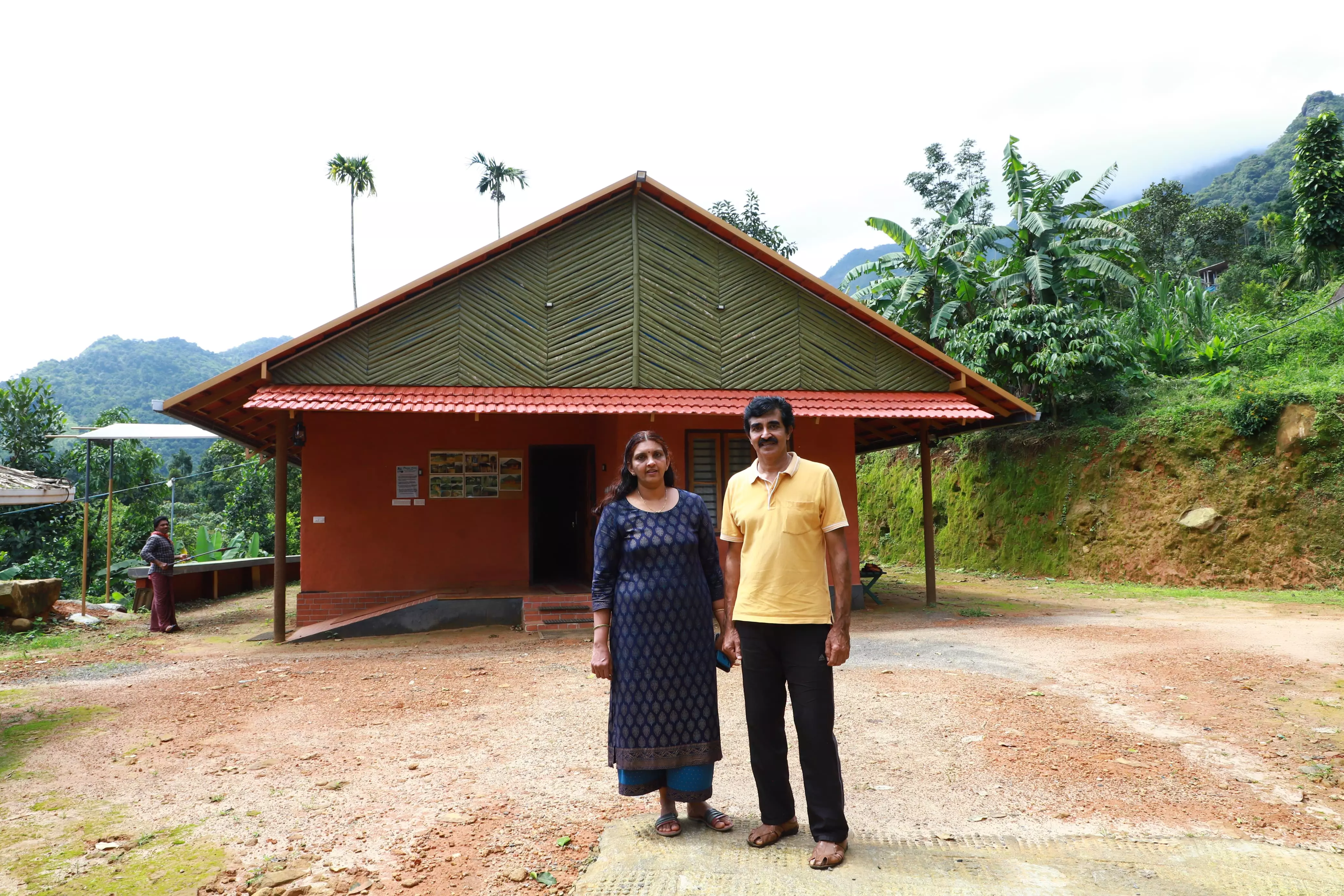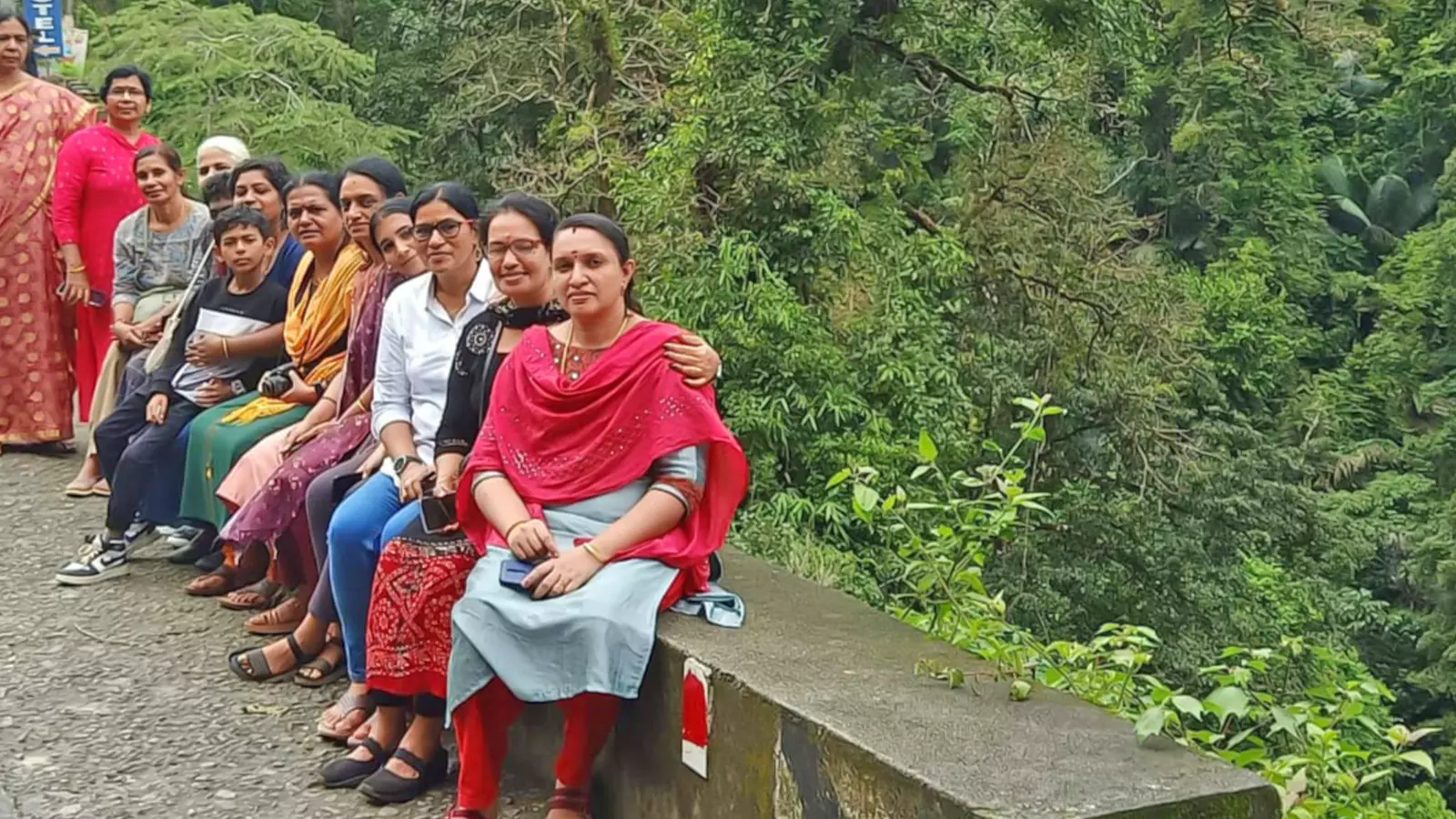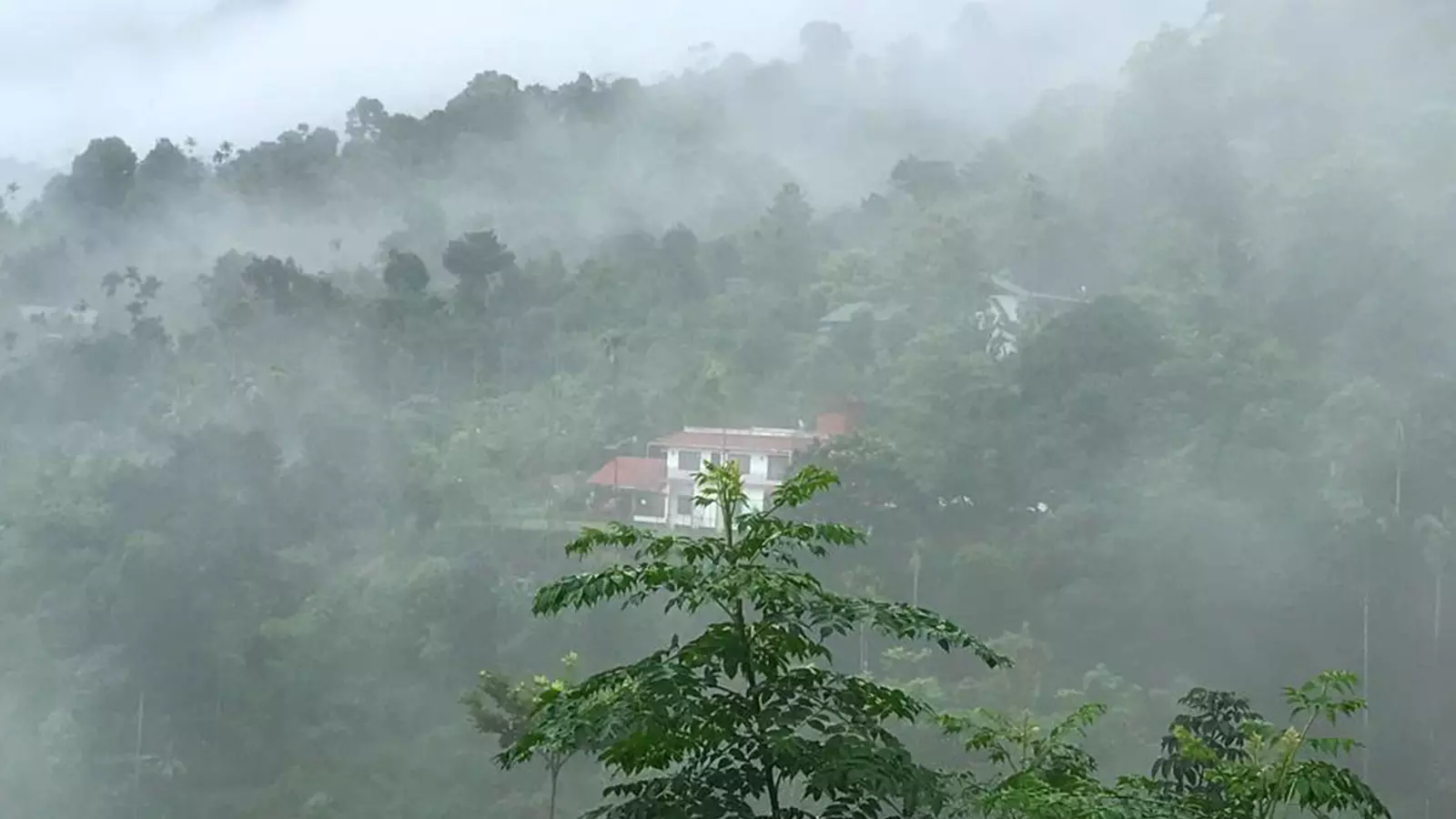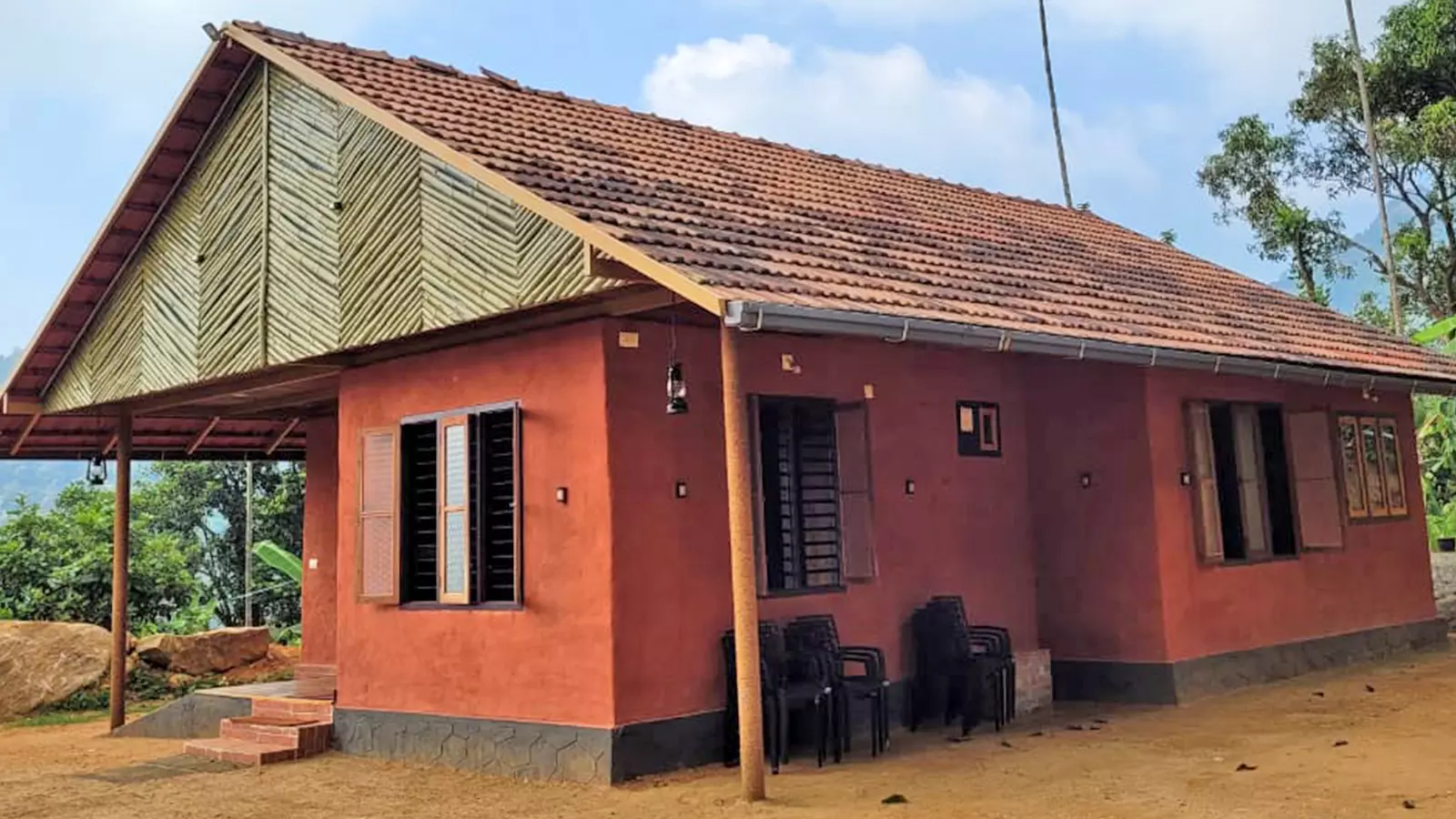
- Home
- India
- World
- Premium
- THE FEDERAL SPECIAL
- Analysis
- States
- Perspective
- Videos
- Sports
- Education
- Entertainment
- Elections
- Features
- Health
- Business
- Series
- In memoriam: Sheikh Mujibur Rahman
- Bishnoi's Men
- NEET TANGLE
- Economy Series
- Earth Day
- Kashmir’s Frozen Turbulence
- India@75
- The legend of Ramjanmabhoomi
- Liberalisation@30
- How to tame a dragon
- Celebrating biodiversity
- Farm Matters
- 50 days of solitude
- Bringing Migrants Home
- Budget 2020
- Jharkhand Votes
- The Federal Investigates
- The Federal Impact
- Vanishing Sand
- Gandhi @ 150
- Andhra Today
- Field report
- Operation Gulmarg
- Pandemic @1 Mn in India
- The Federal Year-End
- The Zero Year
- Science
- Brand studio
- Newsletter
- Elections 2024
- Events
How women-friendly tourism is changing the travel landscape in Kerala

Manju N. Jose, a 41-year-old mother of two and a senior manager at Capgemini, is an avid traveller. She began exploring new places after moving to Kochi for her IT job. Although she often travels with male colleagues, Manju prefers the company of women on her trips."As a student, I didn't have the opportunity to travel as I could not find company for it among girls," Manju says. "I only...
Manju N. Jose, a 41-year-old mother of two and a senior manager at Capgemini, is an avid traveller. She began exploring new places after moving to Kochi for her IT job. Although she often travels with male colleagues, Manju prefers the company of women on her trips.
"As a student, I didn't have the opportunity to travel as I could not find company for it among girls," Manju says. "I only started traveling after I was employed and got married. I can go on tours with friends because my husband shares the responsibility at home and takes care of our two boys."
Vimala Haridasan, a 59-year-old retired high school physics teacher, discovered her passion for traveling only after her retirement. She has already joined several travel groups and completed three trips: two within Kerala and one to Ladakh, after the COVID-19 pandemic, during which she retired.

Jisha Vinod, of Koodaranji, Poovaranthod in Kozhikkod district has a 10-acre farm with organic vegetables, fruits, livestock, and a fishing pond, through which she offers a unique experience to the guests who come visiting.
“I prefer to travel with women and often end up with young girls the same age as my sons, which is quite exciting. It’s comfortable and peaceful to be with younger women—they are super cool,” says the teacher with 30 years of service. "The travel group provides us with perfect itineraries, and the arrangements they make are decent," she adds.
Prasanna Rajam, a senior Malayalam journalist, has been travelling since she completed her journalism studies in the early 1990s. She has explored the length and breadth of India both during and after her tenure as a journalist in Mumbai and later in Kerala. Interestingly, most of her journeys were off-duty and with various groups, often with people she hadn’t known beforehand.
“When I first started traveling, it was within Kerala. Visiting places like Thalassery in northern Kerala felt like going abroad to me at that time. While working in Mumbai, I visited the Himalayas. It was with a group of people I had no prior acquaintance with, and it was incredibly exciting. That month-long trip was a monumental experience in my life,” says Prasanna.
Manju, Vimala, and Prasanna represent different categories of women in Kerala, but they all share a passion for traveling, visiting, and exploring new places. Unlike Prasanna Rajam, who, due to her journalistic and activist background, was able to travel extensively, the other two were unable to fulfil their travel dreams until recently. They had been lacking the necessary infrastructure and support system, but now the tide seems to be turning.

Kerala has seen a significant increase in women travellers, whether solo, in pairs, or in groups.
Of late, Kerala has seen a significant increase in women travellers, whether solo, in pairs, or in groups. Women have begun exploring various destinations, making it a substantial trend. Numerous travel groups, both online and offline, are now organising exclusive tours for women. To keep up with this trend, the government of Kerala has launched an initiative to promote women-friendly tourism. With this first-of-its-kind initiative in the country, Kerala is not only poised to become a fully women-friendly tourism destination, but also a land of women tour-organisers.
The state is implementing this comprehensive project to encourage women's participation in all tourism activities and attract more women tourists to the state.
“The state needs a paradigm shift as the world witnesses a sharp increase in solo trips by women,” P A Mohammed Riyas minister for tourism stated in the state assembly. “Through this project, the state RT Mission ensures safe and hygienic places and tourism destinations for women tourists. The all-women tour packages will be managed and operated by women in all sectors, including food, accommodation, transportation, and community guides,” added the minister.
The tourism department claims that within a year of its launch, the initiative successfully instilled confidence in women travellers, leading thousands of them, both in groups and solo, to explore destinations across the state. This women-friendly project, initiated by the Responsible Tourism Mission (RTM), is being implemented with the technical support of UN Women, an organisation dedicated to promoting gender equality and empowering women. The project includes multiple components and aims to integrate women into the travel network, creating direct and indirect employment opportunities involving around 1.5 lakh women in the travel community.

Jisha Vinod's Dream Acres Farm House and Homestay got registered in the RTM with an ethnic kitchen project.
“The project aims to boost the participation of women in tourism, covering not just the number of tourists but all related aspects. We have conducted a groundbreaking destination safety study across 68 centres. Besides, we carried out a gap assessment survey focusing on women travellers, both solo and in groups, addressing infrastructural gaps and safety concerns. We are working on a grading system based on this and have submitted this data to the government to be included in the plan proposal for the coming year,” says K Rupesh Kumar, the director of Responsible Tourism Mission, Kerala.
“We have already completed gender auditing for six destinations, with 11 more in progress. The inclusion of a gender audit component in the tourism sector is a novel approach,” says Rupesh Kumar.
According to the RTM, through the project that aimed to strengthen the community of women travellers, 28,000 women community members travelled in 2023 alone. “We have women travel operators and associate members, all of whom are women-owned businesses. This initiative has grown significantly. We are building a network, which now includes 22,000 people. There are over 17,000 women-owned units, and we have provided training to 2,800 women,” adds Rupesh Kumar.
Many women travel operators have emerged since the project's inception. Training sessions and workshops have led to the creation of numerous operators, ethnic kitchens, home stays and storytellers.
“This development surprises people in other states, where seeing women traveling independently without male operators or companions is uncommon. For instance, when we visited Andaman, the hotel receptionists were taken aback seeing us — a group of women travelling,” says Geethu Mohandas, who is a resource person for the women-friendly tourism training and also runs a women’s tour company named ‘Let’s go camping’.
“The training programmes have been extremely beneficial for the women who come out to start new initiatives in the sector. Grassroot tourism is becoming more prevalent, shifting the focus from destination-based to experience-oriented tourism. It’s not just top destinations anymore; many others are gaining recognition. Members of the local self-government are involved in the project,” says Geethu.
In the state, tourism has ceased to be a luxury, thanks to the various affordable experiences offered under this innovative project. This initiative has made tourism accessible to all classes, resulting in people from diverse backgrounds gradually engaging in leisurely travel and discovering new destinations to relax and enjoy with friends and family.
“The class of travellers is changing because we are marketing the product differently. Previously, tourism products were accessible only to the high-class and unaffordable for many, but grassroots-level tourism is accessible to everyone. This is why offbeat destinations are becoming popular,” adds Geethu.

Women are travelling to unexplored places and many homestays have sprung up as a result.
Homestays are transforming the hospitality industry. This shift has become a game-changer in rural Kerala, where an average middle-class home can accommodate at least a couple of guests, provided they maintain the prescribed standards.
Jisha Vinod, of Koodaranji, Poovaranthod in Kozhikkod district has a 10-acre farm with organic vegetables, fruits, livestock, and a fishing pond, through which she offers a unique experience to the guests who come visiting.
“Our homestay is family-run. Once the registration process is complete, we offer guests experiences as if they are our relatives or friends. We also have a mud house with three bedrooms, which can accommodate up to 15 people. I got registered in the RTM with an ethnic kitchen project and added the homestay and farm tourism during the COVID period,” Jisha tells The Federal.
Ambili of Maravanthuruthu, Kottayam has another story to tell. Starting with a lunch house, she has now expanded her business to other sectors of the tourism industry too. She organises all-women trips to Kanthalloor in Idukki every month, and has undertaken trips to north Kerala, coinciding with the Theyyam (a famous ritual art which is the part of the folklore of north Kerala) season. She also plans to broaden her activities by launching a homestay shortly.
“I too initially registered as an ethnic kitchen and then expanded into tour operations. Our kitchen offers Kerala lunch, with foreigners being our main customers. My father-in-law, an excellent cook, creates the majority of the recipes and handles the main ideation. My parents and children also contribute significantly. My husband is abroad, and now, after joining this project, I am earning my own income. I primarily operate tours for women within Kerala. If I receive customers from outside the state, I share them with other operators,” says Ambili.
Johanna Saliba Herrera, 44, a Spanish cyber analyst who travelled to Kerala last year with two of her female colleagues, had a wonderful experience with the women hosts and guides they met.
“It was a very refreshing and new experience for me and my friends. This time, a group of young girls hosted us in Kerala. It was so nice to be in their company, and it was interesting to see elderly women running restaurants in places like Wayanad, offering great food at very low cost,” she said over the phone.
“When I first visited India in 2013, I had some very bad experiences with staring and other sort of unruly behaviour from men, which left us kind of traumatised. But this time in Kerala, the picture was totally different," adds Saliba Herrera.
Although the government and some women tourism activists are praising these initiatives, they are not without criticism. Some industry insiders suggest that the department's approach needs adjustments. Those who are already into this sector are not as enthusiastic as the new comers.
"As far as I am concerned, the project has not proven beneficial for entrepreneurs like me. The packages offered by the RTM do not seem attractive to me as an operator,” says Smitha Aliyar, a Kochi-based travel organiser who runs a company called Lady rowers, which has conducted more than 100 tours in the last two years.
"As of now, the women-only tour idea is doing well, but I am slightly apprehensive about its future," says Smitha. "Most of my customers are middle-aged women, while youngsters always prefer mixed-gender tours. I suspect these middle-aged women will also shift to this trend soon, and I do not see a bright future for gender-exclusive tour packages."
Conversely, travellers like Prasanna Rajam and Manju N Jose are optimistic about the future of women-only trips. "Many young women, like my daughters who study or work away from home, prefer to return and unwind in their home state. Offering them guidance would be an excellent initiative," says Prasanna.
"These days, the situation has changed a lot. Popular tourist spots are all bustling with travellers. What’s particularly interesting is that the attitude of the local people has improved significantly. The teenagers with me were very comfortable with the locals, and this is a huge and welcome change," adds Prasanna.
“I have travelled with both mixed-gender groups and all-women groups. I felt more relaxed and comfortable with the women-only group. Our trip to Thailand last May was wonderful, though some of my friends had to multitask over the phone because they still manage family responsibilities due to our conservative setup. If this mindset within family changes, it would be wonderful for women to embark on relaxing journeys, which would enhance the quality of life for both themselves and their families,” says Manju.
